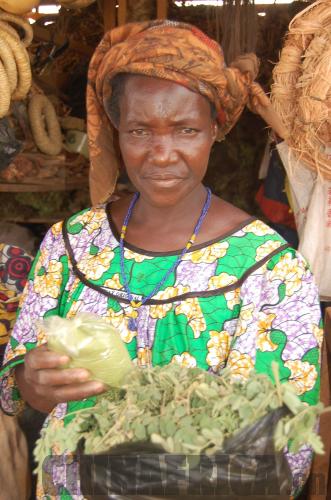|
 |
|
CASH CROP: Moringa tree benefits Benin (COURTESY PHOTO) |
In the fields of Benin, a green revolution has placed local farmers at the forefront of the battle against malnutrition. With the establishment of Association Béninoise du Moringa (ABM), Beninese farmers have expanded the production and promotion of moringa to nourish the ailing West African nation.
Miracle tree
Widely acclaimed as a "miracle tree," moringa is fast-growing and possesses multiple benefits, from nutritional leaves, flowers and seeds, to drought-resistant roots and bark. Moringa leaves are usually consumed fresh in green salads, or sautéd. In health programs, leaves are dried and ground into powder, then sprinkled on any dish for instant nutritional boost.
It has been traditionally used in South and Central Asia, India, and the Middle East as livestock feed, biofuel, medicine, water purifying agent and soil fertilizer, among many other uses.
In the mid-1990s, the U.S. Peace Corps initiated moringa promotion in the country in keeping with nutritional campaigns all over West Africa.
Despite such assistance, however, Benin has long lagged behind in the region, as compared to Niger, which has been producing moringa as a cash crop, and Senegal, which integrated moringa into HIV/AIDS treatment in the late 1990s.
"The value of this plant cannot be downplayed as regards its possibility to address some of the Millennium Development Goals as well as to influence the ongoing debates on climate change," said Muriel Glasgow, founder of Moringa Partners, an interactive outfit of moringa growers, scientists, non-governmental organizations and other enthusiasts from all over the world.
Benin has had its hands full battling against malnutrition. According to UNICEF, one out of every three Beninese children below the age of five has experienced malnutrition. Recent floods that have displaced thousands of residents, devastated farms and destroyed access to clean, potable water aggravate the country's health crisis. Foreign agencies have stepped in with food assistance and nutrition programs, but for the people of Benin, a longer-term solution is needed.
In 2008, a pilot project in the town of Goumori drew closer attention to moringa. The first batch of moringa powder produced was sold out in one week, encouraging farmers to share their knowledge so others could grow the plant.
As communities increasingly grasped the nutritional and economic benefits of moringa, volunteers and farmers saw the need for a mechanism to manage the future of moringa in Benin. Thus, ABM was born.
"We envisioned an organization that would promote moringa on a national scale and facilitate a market for moringa thereby taking the responsibility of promoting moringa and creating a market off the farmers themselves," former U.S. Peace Corps volunteer Christoph Herby told MediaGlobal.
|